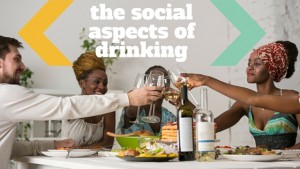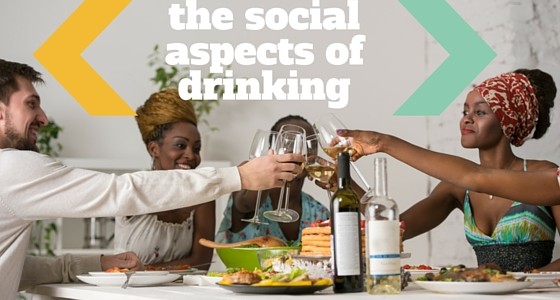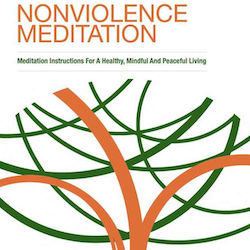“Nothing more excellent or valuable than wine,” observed the Classical Greek philosopher Plato “was ever granted by the gods to man.”
Drinking Wine and Me
Our relationship with this valuable commodity is described in detail in Homer’s Iliad and The Odyssey; it is well documented in Christian and Hebrew texts, and in Confucius’s Analects (collection of sayings).
It is an intimate relationship that science, through various archaeological artefacts unearthed, can trace back almost 6000 years B.C. to the Fertile Crescent of Mesopotamia, an area that today encompasses Iraq, parts of Syria, and Southern Turkey.
What is it about this intimate relationship with drinking wine that resonates so strongly with us? Why do we choose alcohol to accentuate the positive in our lives? Why and how is a line crossed, turning what is positive into negative?
We use Wine to celebrate
Every milestone in our lives is steeped in ritual. When our children are born, it is a time of celebration. We gather with our friends and family and raise a glass to their future. We do the same when those children graduate from university and when they walk up the aisle a few years later.
These are moments of rejoicing; we want to share them with others. What could be more positive than friends and family coming together and, as one, toasting the occasion? Alcohol is the social glue that binds a disparate group of people together. Drinking wine becomes more and more acceptable for many occasions.
Wine helps us to be more Social
When you meet your friends at the pub, or at a party, it is not, per se, with the express intention of drinking wine (or other alcohol). A get together with friends at a football match is not a license to drink vast quantities.
Yes, alcohol is present—there isn’t a sporting event, indeed any social event, where it doesn’t feature. You meet, as human beings, because you are hard-wired to interact with each other, to be social. You meet to have a good time and alcohol can be the stimulant.
In Mediterranean countries, notably France and Italy, there is a culture of partnering wine with food. They combine to create a positive feeling of wellbeing where laughter, conversation and wine flow in equal measure.
Wine aids Relaxation
It can also help us to relax. After a stressful day at the office, a pint of beer or glass of wine with colleagues can ease tensions and lower stress levels. Alcohol marks the transition between work and home, a pause between the two physical spaces we inhabit.
In some countries, what the Social Issues Research Centre (S.I.R.C) calls the ambivalent or morally charged, notably Britain and Scandinavia, a quick drink at the pub or bar on our way home marks the end of the working day. This in itself can be a positive for many people – putting the hours of 9-5 behind them and relaxing with friends. For some, meeting over a glass of wine can also be the facilitator that clinches a deal with a client, or the icebreaker when connecting with a new colleague.
Alcohol can also be the key that unlocks conversation amongst strangers or those of us who are naturally shy. The effect of a couple of drinks can boost our confidence and get us talking.
With the positive connotations associated with alcohol – celebration, fun and relaxation – promoting a sense of enjoyment and confidence, is it any wonder that the great Seventeenth Century physician and astronomer Galileo Galilei said it was like ‘sunlight, held together by water.’
Magazines, billboards and television feed us a daily diet of happy people with a glass of something alcoholic in their hand. The message being conveyed is that you and I can be happy like them. The more subtle, insidious message being conveyed is that drinking can make us more social human beings and, in the eyes of society, we become more socially respectable.
Alcohol’s darker side
However, alcohol is a chameleon. The sunlight that Galileo refers to has a darker, negative persona, that needs to be heeded when drinking socially.
At its mildest, the negative effects of drinking are a bad hangover, treatable with large quantities of water to rehydrate, some headache tablets and sleep. Your performance at work the next day might suffer but with luck the boss will be too busy to notice. More terrifying, you remain convinced you are perfectly competent to drive despite the volume of alcohol consumed.
In its worst manifestation, we become the alcoholic and social pariah in Paul Torday’s book, The Irresistable Inheritance of Wilberforce.
In this, the ultimate cautionary tale for wine lovers Torday graphically illustrates how the casual drink can merge into several and become habitual. As you read about Wilberforce, you begin to understand how drink can affect a personality, how a positive person with a sunny disposition can become morose, argumentative and uncharacteristically aggressive.
It is easy to see how some of us, under the influence of alcohol, suddenly want to take on the world, displaying a preponderance for violence that our sober selves would not recognise; we could become Begbie, the violent thug so memorably portrayed by Robert Carlyle, in the 1996 classic movie, Trainspotting. If you want to know why so many urban pubs in Scotland now use plastic cups, here is the answer.
If you have suffered a trauma, for example losing a loved one in a car accident, been engaged in military conflict or made redundant from your work, it is easy to withdraw into yourself, avoid human contact and seek solace in the bottle. Beware! As Doctor Robert L. Doyle and psychologist Doctor Joseph Nowinski compellingly illustrate in ‘Are You an Almost Alcoholic?’ (elementsbehavioralhealth.com), the line we tread between drinking casually and becoming an alcoholic can be a fine one.
When you drink habitually, the body never ‘dries out.’ It doesn’t get a chance to process the alcohol properly and you are merely topping up all the time, what Doyle and Kowinski refer to as ‘drinking to keep the buzz.’ You are, without realising it, well on the way to being an alcoholic.
The Art of Social Drinking
So how do you avoid these dangers and not end up like Wilberforce or Begbie? How do remain the right side of the line, yet still able to enjoy drinking socially?
Awareness of these dangers is nothing new. In the Eighth Century A.D St Boniface wrote to Cuthbert, Archbishop of Canterbury, noting that, “In your diocese, the vice of drunkenness is too frequent.”
There have always been measures, whatever the culture, to control how much we drink, both official and self-regulatory. In Ancient Sumeria innkeepers had to abide by a strict code; in 1920s America prohibition laws tried to control what and how much people drank. History records self-regulation has always been more successful.
Today officialdom grapples with binge drinking, where the sole aim is to consume as much as possible, without giving a thought to what is being consumed. The powers that be, you could argue, just need to wait for the passing of time.
As we climb the corporate ladder and start a family, we mature. Most of us still want to enjoy alcohol in the company of family, friends and colleagues, but the way in which we do this changes. We want to learn more, rather than simply consume, and would rather keep a clear head for tomorrow.
The art of social drinking is already in place in the fine dining and gastro pubs of New York and London, Sydney and Stockholm. These are environments where food and drink are not merely fuel for rapid consumption but nature’s bounty to be taken seriously. Some of us have embraced Italy’s slow-food culture and it is no accident that the demand for celebrity chef cookbooks remains undiminished.
The ways in which we drink and interact are also changing: today’s wine enthusiast is as likely to socialise at a wine tasting as at the pub. Instead of indiscriminately buying the odd bottle of wine from the supermarket on our way home, we can choose to buy by the case through a club (see our recommendations about Wine Clubs in the UK and do not forget to go to our Forums to leave your feedback). We still like to bump into complete strangers at parties, but can now choose to do so at wine parties, where the numbers are limited and the drinking controlled.
Wine Tastings
“You only have to let me smell one and I can tell positively its country, its kind, its flavour and soundness,” boasts Sancho Panza in Don Quixote, the novel by Seventeenth Century writer, Cervantes. It’s a brave individual who comes out with that kind of fighting talk today.
If there is one subject guaranteed to raise a snort of derision from the uninitiated, and a sigh from the wine cognoscenti, it is wine tasting. Its detractors see wine tasting as a kind of secret code for wine snobs, totally unnecessary hyperbole designed to confuse and exclude. Its defenders say it is a useful tool that allows nonprofessionals to figure out the basic categories of wine: dry or fruity, citrus or fruity, light or full bodied.
The truth, amid the slings and arrows, lies somewhere in the middle. At its most basic, tasting wine allows you to pause, to reflect on what you are drinking, rather than downing the whole glass in one.
Wine tastings are also conducted in an environment that allows you to think and talk.
Pubs and clubs often deliberately pump up the volume, knowing full well that if their clientele cannot talk, their only option is to drink.
This is an environment that allows everyone a voice, not merely those who can talk the most and loudest. At wine tastings, not only is the volume kept low, but someone else has control over the drinking. You pay a set fee, taste a certain amount, and then go home.
Wine Clubs with the social aspect
Just because some of us find it difficult to take the rituals of wine tasting seriously doesn’t mean we aren’t interested in learning more or don’t want to drink responsibly.
Wine Clubs, including the granddaddy of them all, The Wine Society, founded in 1874, understand this. The Wine Society has been joined by familiar names in the wine business, most notably Berry Brothers, Laithwaites and Averys. Many newspapers also run wine clubs, including The Sunday Times and The Spectator to name just two, and more recently a clutch of unknowns have joined the party, have a look at the full list of wine clubs in the UK here.
These firms all differ in the packages and conditions they offer but all operate on one simple premise: they carefully select interesting wines for you to try; in return you have to buy by the case. Some require you to buy monthly; others stipulate bimonthly; one, Naked Wines, asks for a £20 a month top-up fee that goes to support independent winemakers.
All encourage you to focus on what you are buying, to opt into a means of buying wine that is great fun and not in the least intimidating (which wine tastings can be). You broaden your palate at a pace and in a way that suits you.
Wine Parties that you can organise yourself
A similar sentiment lies behind the latest idea, wine parties. If your partner, a good friend, or a work colleague, has a birthday looming why not treat that person to a wine party? Most of us, at some level, have an interest in wine and this is a great way of bringing friends and family together in an unthreatening environment.
This is not a party in the traditional sense, where alcohol seems to flow unchecked, as does the behaviour at times. These are small groups of like-minded people, 10 is a good number, who want to have fun in a controlled, responsible manner, yet at the same time are willing to taste some wines and learn something in the process.
If you are feeling confident you can organise your own. Many of us have neither the time nor the necessary confidence to take that step. Which is where wholesaler, Majestic wines, and a clutch of online resources including ThirtyFifty can help.
They will come to you, in your home, or at a mutually agreed venue. They will discuss with you a theme: this could be a selection of wines made from one grape variety, sourced from different corners of the world; perhaps a tasting exclusively of wines from one country; you could really have some fun and plump for a blind tasting.
They will also advise you on food pairings, although you will have to organise the actual catering. On the day, it is their expertise, together with the glasses, ice buckets and other relevant accessories, that you will be hiring.
Complete DIY wine tastings
You do not want a home intrusion?
Have a look at our exclusive e-book on How to start with Wine Tasting.
Should you also wish to have a look at wine and food pairing ideas – we have got a free e-book for you as well. Head to our Guides and Tools section to download (it is all free, but you need to be a registered member to be able to access our e-books and exclusive guides)
Wine and social aspects: the verdict
 So to answer the original question, we shouldn’t drink just for drink’s sake. Celebrate life and all its occasions, relax with mates and enjoy a few drinks but, in the words of Grandma, “All things in moderation, dear boy!”
So to answer the original question, we shouldn’t drink just for drink’s sake. Celebrate life and all its occasions, relax with mates and enjoy a few drinks but, in the words of Grandma, “All things in moderation, dear boy!”
Seek more information on wine and alcohol in context of social drinking.
Head on to our Forums to discuss drinking wine in a social aspect. We have also published a a few guideline articles will also help you to reduce your alcohol intake (check our Tips How to Drink Well but Less) and guide you through the world of units and calories in wine.
Should you wish to know even more, head to an official body – drinkaware.co.uk – they offer more guidance and useful tools and calculators.
Cheers!






1 Comment
Dimitri
February 9, 2016Great piece of work from our freelance writer Charles Waters!
Just a few comments from me:
‘The effect of a couple of drinks can boost our confidence and get us talking.’ this touches a very interesting topic of confidence and over drinking. Not sure I will agree to put this comment into a range of positive ones yet, more to the side of factors we need to overcome not to become an alcoholic at the end of the day.
I did like Charles mentioning ‘A reflection on the drink’, which reminds me of a mindful drinking. I believe if you are mindful in the process of drinking wine, you savour every drop of it and potentially drink less.